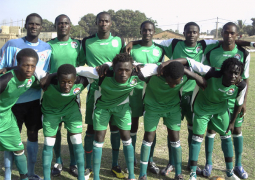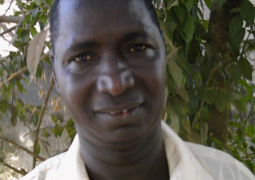Magistrate E. Jaiteh of the Brikama Magistrates’ Court recently delivered a ruling in the alleged human trafficking case involving one Modou Nyang.
Delivering the ruling, the presiding magistrate told the court that on 10 September 2015, counsel M. Jobe, applied for the evidence of PW1 to be heard in chambers on the grounds that the witness they intended to call was a suspected victim of the offences alleged against the accused person.
He said the prosecutor relied on section 46 of the Trafficking in Persons Act, which provides that “all proceedings pursuant to this Act shall be conducted in such a manner that will not be detrimental or prejudicial to the rights of trafficking and are consistent with psychological and physical safety of a victim of trafficking and witnesses.”
“M. Jobe further submitted that the intent of this provision is to accord protection on various traumas and the imminent fear of discrimination against either the victims or the witnesses,” he said.
The prosecutor further submitted that to allow PW1 to testify, in an open court, would be prejudicial to her rights and she risked being discriminated against.
M. Jobe referred the court to section 24(2) of the 1997 constitution that guarantees the right of the accused person to be tried in an open court, he said, adding that the prosecutor, however, submitted that the provision of section 24(2) of the 1997 constitution is not absolute.
The prosecutor argued that the proviso gives the court the discretion to either allow the evidence of PW1 to be heard in camera, he stated.
He said prosecutor M. Jobe, in furtherance of his argument, opined in the alternative that where the court considered the evidence of PW1 should be heard in an open court, applied for the court to make an order to the effect that the identity of PW1 should not to be disclosed in any of the newspapers and urged the court to grant the application under the circumstances.
He said in responding to the prosecution’s application, the defence counsel, L.K. Mboge, stated that justice is a two-way traffic and not one-way traffic.
Defence counsel L. K. Mboge argued that section 46 of Trafficking in Persons Act, 2007 did not state that proceedings in the case should be heard in chambers or in camera, he said.
Defence counsel Mboge argued that section 46 of the Act offends the 1997 constitution on discrimination.
He said defence counsel argued that section 4 of the 1997 constitution had rendered section 46 of the Trafficking in Persons Act void and to have no legal effect.
Defence counsel submitted that section 46 is discriminatory, hence it is talking about the private life of the victim of trafficking, he said, adding that defence counsel further argued that whatever law protects the private life of the witness should be for the accused and further submitted that section 46 of the Act could be relied upon by the prosecutor for the court to hear the case in camera, hence it violates sections 4 and 33 of the 1997 constitution.
In further arguing the case, he said, defence counsel stated that section 46 of Trafficking in Persons Act had given the court wider latitude to conduct the proceedings in such a manner that would not prejudice the rights of the victim.
He said defence counsel argued that the lawmakers in their wisdom, did not go as far as section 47, which makes it clear that victims of sexual violence may be permitted by court to present their evidence in camera
He said counsel also stated that the difference between sections 46 and 47 is that the lawmakers in their ultimate wisdom did not refer to the victim of trafficking to be heard in camera, because it is not the evidence of all victims that should be heard in camera.
Defence counsel concluded that hearing this witness in camera would defeat the purpose and intent of section 46 of the Act, and urged the court to refuse the first limb of the application and concede to the second limb of the application for the court to make an order not to publish the name of PW1 in the newspapers.
“Having heard counsel M. Jobe move his application and having heard the defence counsel’s arguments against the prosecution’s application, I believe there is only one issue for determination and that is whether the evidence of PW1 should be heard in chambers/ camera,” said the magistrate.
He said with regards to the lone issue as to whether the evidence of PW1 should be heard in chambers was the crux of the application.
The prosecution submitted that the first prosecution witness was a suspected victim of the offences alleged by the National Agency Against Trafficking in Person and relied on sections 24(2) of the 1997 constitution and 46 of the Trafficking in Persons Act 2007 as the basis for the application, he said.
“The legal principle pegged in section 24(2) of the 1997 constitution of The Gambia is the principle of open justice. The application of this principle enunciated in section 24(2) of the 1997 constitution of The Gambia is that ‘all proceedings in every court should be heard in an open court’ and this allows public scrutiny against judicial arbitrariness or idiosyncrasy, guarantees a fair trial and maintains public confidence in the administration of justice,” stated the magistrate.
“I must state clearly that the public and the press must be admitted to the courtroom and evidence must be given publicly. This is the principle of open justice,” he said.
He said the prosecution submitted that PW1 was a victim of trafficking and the submission was in tandem with the elements of section 46 of the Act and it remained unchallenged.
However, he added, since the purpose of the rule of open justice is to serve the ends of justice, it may be necessary to depart from it where the nature or circumstances of the particular proceedings are such that the application of the rule of open justice in its entirety would frustrate or render impracticable the administration of justice and this, he must hold as a fact.
“In view of the charge and its particulars before the court and the relevant laws adduced in the application, I resolve the lone issue before the court in favour of the prosecution. I believe that it is prudent in the interest of justice to depart from the rule of open justice and hear the evidence of PW1 in chambers and accordingly, the prosecution’s application is hereby granted and the evidence of PW1 will be heard in chamber/camera,” he declared.



